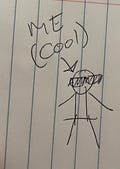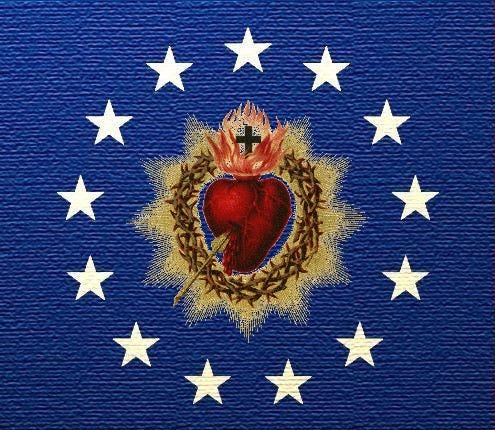This time we’re featuring and interview with “Scoot”, founder and writer at the Peasant Times-Dispatch. Scoot was one of the first newsletter writers that I encountered via Substack Office Hours and so I’m pleased to have this opportunity to share his answers to my questions. Scoot also writes Gibberish, a second newsletter focused on fiction and the writing process.
Here’s Scoot!
When you were a kid, what did you want to be when you grew up?
I don't know! I have no recollection of having a strong sense of vocation growing up. I enjoyed many things, but never made the leap that I wanted to do them for a living. My first love in life was Space and astronomy, which began in the second grade. I remember my Aunt asking me while I was in college, "Why didn't you want to be an astronomer?" and my answer was that I would need to find a new hobby!
You may have seen that I am an Accountant in my day job. In my mind I waited until the last second. I was beginning to apply for colleges and I was sitting around with my family. I had "Architect" in my mind because I had taken a technical drawing class and enjoyed it. And my Dad said--"What about accounting?" And it just clicked.
Were you a religious person before you converted to Catholicism a few years ago? Did you originally follow a different faith?
Religion ebbed and flowed. I was raised as an Anglican, and Church was a sometimes-food. My parents both felt some kind of religious instruction was culturally and intellectually important but neither of them had strong religious convictions themselves. Eventually my family hit a rough patch and what attachment we had to our faith was set aside. I spent many years in this time as a kind of Agnostic/Deist--I could concede the existence of God but I felt a lot of animosity towards "organized religion". In College I met my good friend who goes by Hambone here. He was raised Catholic but had fallen away. We both agreed that there was something going on with religion, and we wanted to get to the bottom of it. If we are going to pick a religion, we wanted to make sure it was the right one. I tackled the project with the aim of figuring out why I should go back to Anglicanism, he tackled it with the aim of figuring out essentially whether the Catholics or the Eastern Orthodox had a more compelling argument. We both ultimately found our way into the Catholic Church. Hambone found his way first--I have always been a little more hard headed so it took me a little bit longer.
I have to ask: is Scoot your real name or is there a story behind this? I'm guessing Hambone's name is a pseudonym?
I laughed when I saw this question. Scoot is not my real name, but there is a story behind it, and it comes from Hambone (yes--also a Pseudonym). Without giving it all away, my initials are R.S. Hambone and I worked at an accounting firm together after college, and I was applying to new apartments or something, and I was having trouble with my scanner. I had a copy of my gas bill to show a proof of address, and I asked him to scan it for me. He sent me an email that said "Roosty Scoot Electric Bill" and I about died laughing--he scanned it just fine but labeled it just completely wrong. "Roosty Scoot" became my moniker for a while (i even found this great mascot) but at some point I decided to drop Roosty and keep Scoot.
You've described your concept of Peasant Faith for your readers but would you mind briefly summarizing it for the people reading this interview?
The Peasant Faith is, in short, about understanding the limit of things we should be concerned about and aggressively safeguarding that limit. In VERY short: worry less, love more.
It requires a lot of trust, when the world feels out of control, trusting that God has things well in hand. We're trying to break the outrage cycle--when I feel myself getting wound up about some world event, I ask myself "What can I do right now to ameliorate this thing even a little bit?" and nine times out of ten the answer is "nothing". I try to keep my focus closer to home as a result--how can I help the people close to me? What problems in the community can I solve? These are things where my energy can have a proportionally greater impact.
Who would you say is the ideal or intended reader of the Peasant Times-Dispatch?
There's a couple areas of overlap in the Peasant Times-Dispatch's audience. In very brief, I would say it is for Catholics, Christians, and Christian adjacent people who are trying to worry less and love more. I think anyone could find something of value by reading.
I've honestly had to re-jigger how I structure the PTD multiple times over the last year. I am still trying to find the exact way to write what I want to write in this area, but every time I hit "publish" I get closer to achieving that ideal!
Prosperity theology: on the surface it might seem to be opposed to your concept of peasant Catholicism... is it?
I had not heard of Prosperity theology, so I did a quick google and I see that I had heard about the idea just didn't know it by that name. Prosperity Theology is, to my understanding, the idea that you can receive material wealth and other good things by doing good deeds and giving generously to the poor or to collections. "If I give to the poor, I'll get rich!" in very brief. The important thing, to me and to this peasantly idea is that "good things come from God". But God is not a slot machine, He is, well--God. It's about relationship, not about cause and effect. So if I am blessed with wealth--good! I shouldn't think that it's because I checked the right boxes to make me worthy of wealth. That's not to say that "if you have a relationship with God you will be materially rewarded" either. Whatever material treasures we get here on earth---they're nice, but we can't take our stuff with us when we die. Better to lay up "spiritual" treasures in Heaven:
"Lay not up to yourselves treasures on earth: where the rust, and moth consume, and where thieves break through and steal. But lay up to yourselves treasures in heaven: where neither the rust nor moth doth consume, and where thieves do not break through, nor steal. For where thy treasure is, there is thy heart also."
Are there any particular writers or thinkers that you'd like to engage with and, if so, who?
Oh, tons. I mean, I would enjoy a conversation over a brewski with just about anyone. There's a few people I have in mind whose ideas I think are most different from my own, and vice versa--so for that reason I think a conversation with them would be personally edifying whether it is content generating or not. I won't name names because I don't want to look like I'm calling anyone out.
I think talking to people with different ideas is where most of the edifying conversations are. It's how we learn what we really believe--because if we disagree not only do we have to have the self awareness to say "That's not in line with my beliefs" but you also have to be able to articulate "why" and that's a process I really enjoy. I don't like making people angry or having arguments--but dialectic, trying to get to the truth of an important matter, that's what gets my gears turning.
Are you satisfied with Substack as a publishing medium? Is there anything you would change?
Very satisfied! It has been easy and simple and it feels like a blank canvas. Everyone can make something a little different with it, use the tools in a slightly different way. I have enjoyed the creativity of trying to build a public face to this Peasantly ideation and Substack has given me the ability to do that in the way that I feel works best.
Nothing that I would change just yet--obviously I know it's an active work in progress, and I think they are aware of most of the bugs and tweaks and things. Maybe some more refined customization for feed curation or tools to make lists or something but--I'm not a technical person, I'm happy taking what they've given us and trying to make the most of it.
What's your 5 - 10 year plan for the Peasant Times-Dispatch?
Honestly, my motivation is that I want to help people. I think the general idea of worrying less and loving more is something the world needs and would improve the quality of our public discourse on any given topic. In order to help people, I need to get the Peasant idea condensed into something that can be easily consumed, explained, and delivered. To that end, writing a book about it has been on my list for a long time. My dream is to be able to write full-time so if the Peasant Times-Dispatch can make that happen and I can help people at the same time, then I'll call that good.
Pretend you wake up one morning and you learn that the Internet has been destroyed. What's the first thing that you do?
Ink up the ol' letter writing pen and try to remember people's addresses! Thank you for reminding me that I probably should have an address book somewhere!
Thanks to Scoot for agreeing to this interview and for his wonderful answers!





Awesome to learn more about Scoot! He always brings joy to my Notes experience.
I've liked seeing Scoot on Notes, appreciated this interview. I agree with his purpose in regards to the outrage cycle. Most of it is stuff that doesn't have any real relevance to daily life.